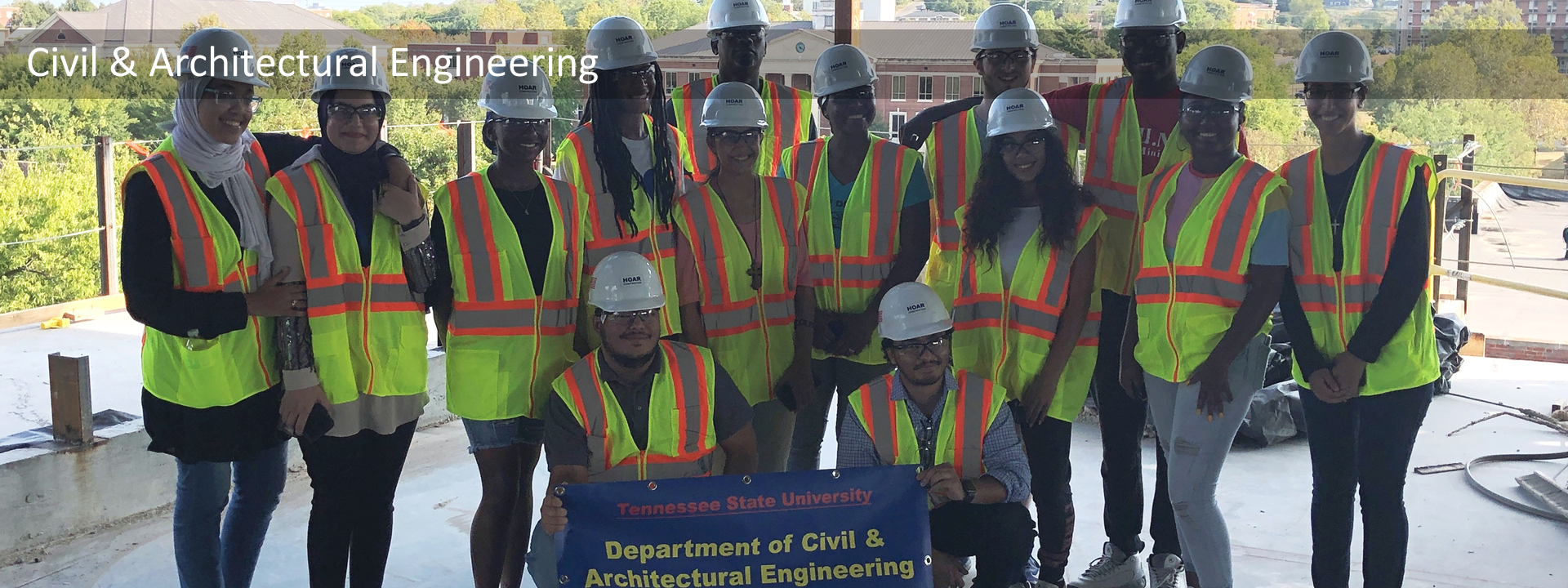- Home >
- Civil Engineering
- > BS of Architectural Engineering
BS of Architectural Engineering
Program Educational Objectives
Architectural engineers plan, design, construct, and maintain buildings. They design and construct the structural systems, the heating and air conditioning systems, the lighting and electrical systems, and the plumbing and fire protection systems for buildings, along with construction management. Architectural engineers engage in building and community sustainability practices. They facilitate maintenance and renovations of existing buildings. Three specializations in the Architectural Engineering program are Structures, Mechanical (HVAC)/Electrical/Lighting, Construction and Facilities Management.
The PEO’s represent the expectations of our graduates some 4-6 years after graduation.
- Will perform with capabilities to function successfully as a proprietor professional or in interdisciplinary teams by utilizing acquired and learned problem-solving and communication skills.
- Will continue to advance their knowledge through attainment of licensure, pursuit of graduate studies, and professional development activities.
- Will execute ethics principled professional leadership within their workplace, including engineering societies and civic organizations while performing responsibilities of increasing professional and societal complexity.
Student Outcomes
The student outcomes of the programs require that the student upon graduation demonstrate the following:
- an ability to identify, formulate, and solve complex engineering problems by applying principles of engineering, science, and mathematics.
- an ability to apply engineering design to produce solutions that meet specified needs with consideration of public health, safety, and welfare, as well as global, cultural, social, environmental, and economic factors.
- an ability to communicate effectively with a range of audiences.
- an ability to recognize ethical and professional responsibilities in engineering situations and make informed judgments, which must consider the impact of engineering solutions in global, economic, environmental, and societal contexts.
- an ability to function effectively on a team whose members together provide leadership, create a collaborative and inclusive environment, establish goals, plan tasks, and meet objective.
- an ability to develop and conduct appropriate experimentation, analyze and interpret data, and use engineering judgment to draw conclusions.
- an ability to acquire and apply new knowledge as needed, using appropriate learning strategies.
Architectural Engineering deals with all engineering aspects of building performance, integrated with the building's architectural requirements. Architectural engineering students study all engineering aspects of building performance systems including structural systems design, heating ventilation and air conditioning design, electrical and power design, and construction and project management. Details
Undergraduate Curriculum
Graduation Requirements
Tennessee Community Colleges
Annual Undergraduate A E Enrollment and Graduation Data
|
|
Fall 2011
|
Fall 2012
|
Fall 2013
|
Fall 2014
|
Fall 2015
|
Fall 2016
|
Fall 2017
|
Fall 2018
|
Fall 2019
|
Fall 2020
|
|
Fall Enrollment
|
109
|
84
|
88
|
85
|
120
|
103
|
79
|
85
|
74
|
87
|
A E Bachelor's Degrees Awarded
|
|
2011-
2012 |
2012-
2013 |
2013-
2014 |
2014-
2015 |
2015-
2016 |
2016-
2017 |
2017-
2018 |
2018-
2019 |
2019-
2020 |
2020-
2021 |
|
Degrees Awarded
|
5
|
3
|
6
|
6
|
4
|
9
|
5
|
5
|
7
|
6
|


